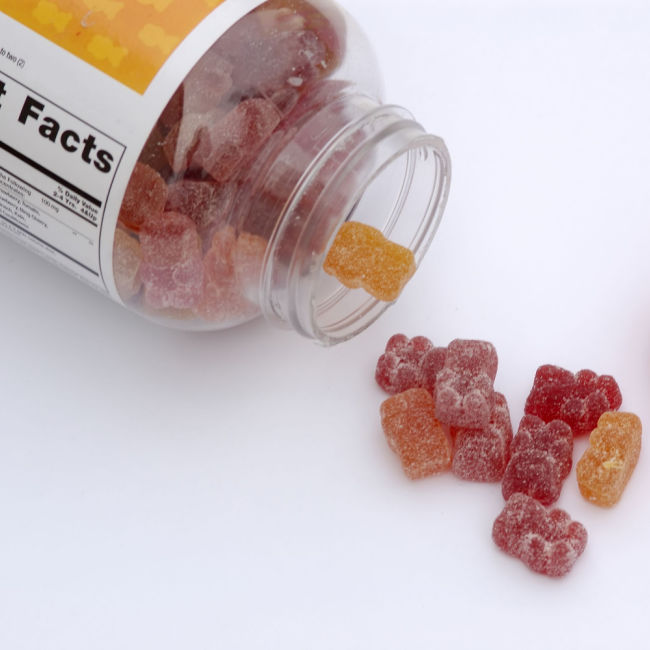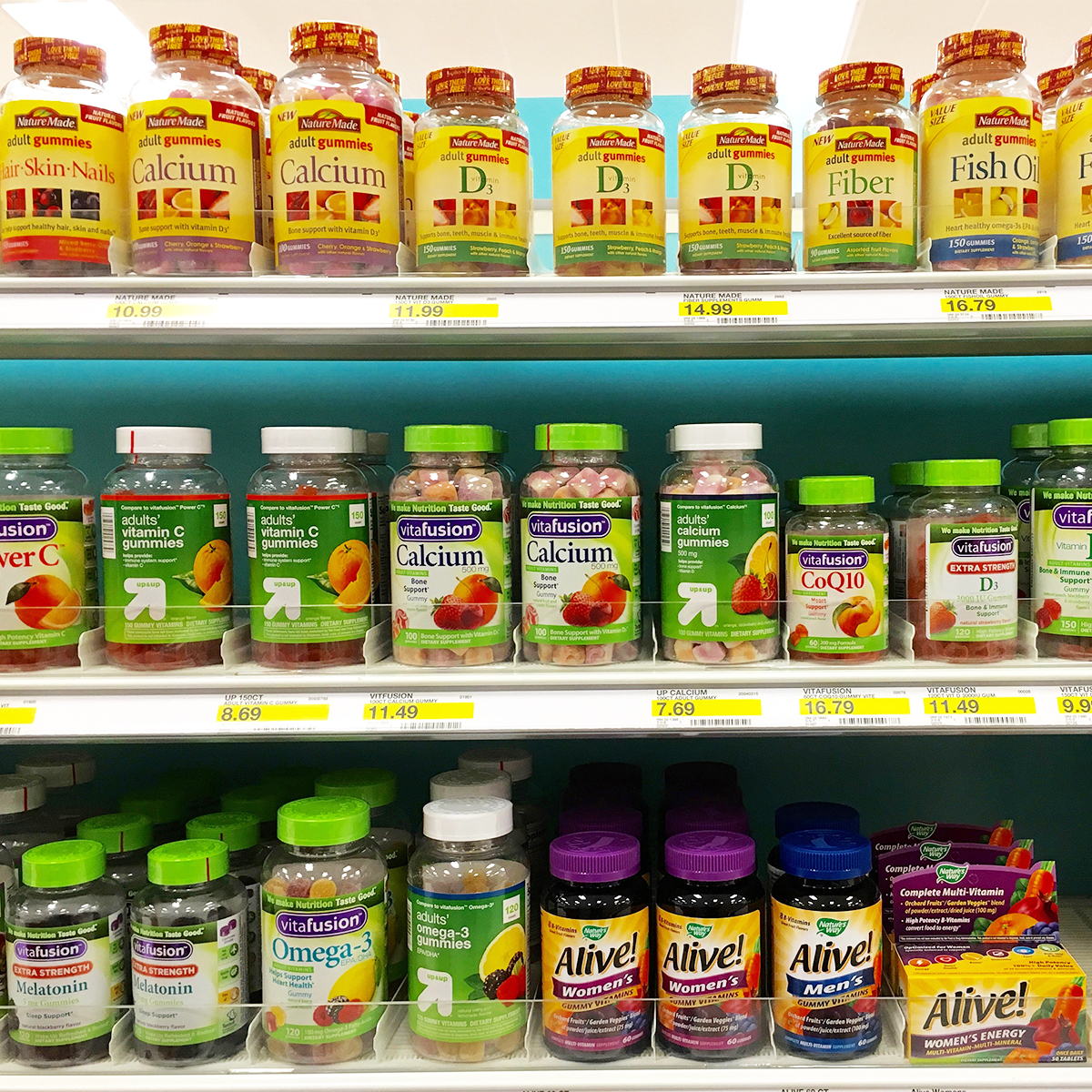This story has been updated since it was originally posted on 11/20/22 to include more expert insight
While it’s important to get as many nutrients as possible into your daily diet, we’re all bound to run into gaps and deficiencies sometimes. That’s where supplements come in. Supplements are a fantastic way to ensure your body is getting everything it needs to function properly and stay as healthy as possible. However, it’s important to note that not all supplements are created equally. Some can be dangerous, while others are simply ineffective. In fact, there’s one kind of vitamin that experts say you should skip altogether. Believe it or not, it’s a multivitamin—especially the gummy kind.
To get down to the bottom of things and learn exactly why you may want to consider leaving those One-A-Days on the shelf next time you’re at the pharmacy, we spoke to holistic physician Sony Sherpa, MD. She told us that multivitamins typically don’t offer enough nutrients to make a difference, and gummy varieties are difficult for your body to absorb properly. Learn more below!


Gummy multivitamins
For those of us who are always looking for shortcuts, gummy vitamins seem like the perfect solution to supplements. They're supposed to give us all the vitamins and minerals we need—and they taste so good, we'd eat them like candy if we could. However, dear reader, we're sad to tell you that many health experts agree on one thing about these delicious supplements: they're virtually useless when it comes to health benefits. That's right: neither multivitamins nor gummy vitamins are the most effective way to get your nutrients. When combined, they're pretty much a waste of money for a few reasons. We'll dive into exactly why below.

Downsides of multivitamins
While a multivitamin may sound like a great way to meet your daily quota for all of the important vitamins and nutrients your body needs to thrive, Dr. Sherpa warns that this isn't necessarily the case. If you think it sounds too good to be true, you're probably right. This is because this variety of supplement offers a small portion of the vitamins you need.
"Essentially, the vitamin contents of multivitamin tablets are greatly reduced because these supplements are manufactured in very large quantities," Dr. Sherpa explains. "This allows for the inclusion of a small amount of each vitamin, rather than producing tablets with larger concentrations of only one or two vitamins. Consequently, multivitamins often do not contain nearly enough of any given vitamin to have a noticeable effect on our health." So while you may feel like you're providing your body with ample fuel, you might be hardly giving it anything useful at all.
Nutritionist Mary Sabat seconds this, noting that there's no one-size-fits-all approach to nutrition. "Multivitamins typically contain a broad spectrum of vitamins and minerals, but the ratios of these nutrients may not be tailored to individual needs. Some nutrients can compete for absorption in the body, and consuming excessive amounts of certain nutrients while lacking others can lead to imbalances," she warns.

Downsides of gummy vitamins
If multivitamins are somewhat useless on their own, they're even less worth your money when they come in gummy form. As fun (and tasty) as gummy vitamins can be, Dr. Sherpa says they likely won't do your health much good due to the fact that they offer low amounts of the vitamins you need.
"One major factor is that these types of vitamins typically contain lower quantities of vitamins and minerals since they are designed for children or young adults who typically require smaller doses of these nutrients," she explains.
But it isn't just the low vitamin content of these supplements that makes them a poor choice. Dr. Sherpa says they're also difficult for your body to absorb, thanks to all that sugar that makes them taste so good: "Gummy vitamins often have poor absorption rates due to their high sugar content, which can interfere with the body's ability to absorb and utilize these nutrients. As a result, gummy vitamins may not be as effective at meeting our vitamin and mineral needs as other supplements," she tells us. Say it ain't so! Plus, it's no secret that excessive intake can lead to a range of health risks. Guess it's time to invest in some big girl supplements and say goodbye to our candy-flavored fantasies.

What is the best way to get vitamins?
So, if multivitamins and gummy vitamins aren't all they're cracked up to be, how should you get your daily dose of vitamins and minerals? Unfortunately there's no easy shortcut. Dr. Sherpa says the most effective way to get nutrients is always straight from the food you eat. "The best way to ensure that we get the proper amount of vitamins and minerals is to focus on a healthy, well balanced diet that includes plenty of fruits, vegetables, lean protein, and whole grains," she notes.
However, this doesn't mean that all supplements are a waste of money. If you find you're missing certain vitamins and minerals from your diet, the right one can really come in handy—just don't rely on them for everything. "Supplements are there to fill any gaps in our diet and help us to stay healthy, but they should not be the sole source of these nutrients," Dr. Sherpa explains.
As far as the best way to ensure your body is absorbing all the beneficial nutrients you provide it with, she offers some advice: "Along with a healthy diet, it is also important to exercise regularly and avoid smoking and excessive alcohol consumption, as these behaviors can interfere with our ability to absorb and utilize vitamins and minerals. Taking care of your body is a life-long effort, and making good choices about nutrition is a crucial part of that process," she concludes. Noted!
READ MORE: Why People Who Are Deficient Of This Mineral Struggle To Lose Weight


























